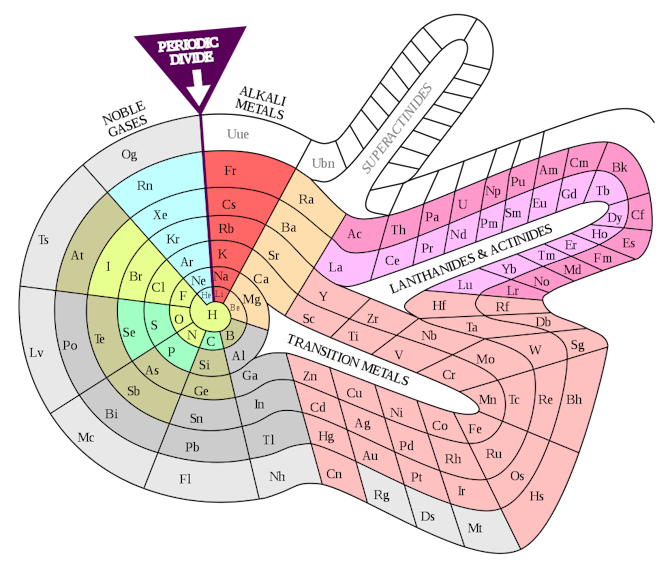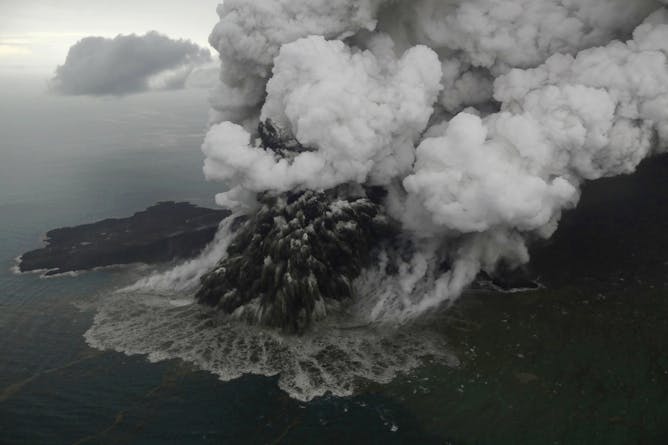|
|
|
Editor's note
|
|
The periodic table is 150-years-old this year, or at least the periodic table in the basic format we know it today, with chemical elements arranged in rows and columns according to their atomic weight and other properties. Mark Lorch explains how the table could have looked very different if we had followed one of the more striking designs put forward over the years.
Dry January is now a well-established period of self-flagellation on the British calendar, yet the evidence that it does your health any good is scant. The only group that seems to benefit, says Ian Hamilton, is the alcohol industry, as it distracts from the fact that alcohol does real harm to heavy drinkers – a cohort that is unlikely to take part in Dry January.
In the fourth instalment of our Ending Austerity series, where economists put forward viable alternatives to austerity, Englebert Stockhammer makes the case for everyone in Britain getting a pay rise. Not only would it be good for workers, he says, it is crucial for the stability of the economy.
The recent Indonesian tsunami that killed at least 426 at the end of December was caused by a chunk of volcano sliding into the sea. Thomas Giachetti explains how, although the timing of the event took authorities by surprise, his research made a pretty good prediction of what might happen if such a catastrophe were to occur.
|
Stephen Harris
Commissioning + Science Editor
|

|
|
Top stories
|

Theodor Benfey’s spira table (1964).
DePiep/Wikipedia
Mark Lorch, University of Hull
There have been some rather wacky looking suggestions for arranging the chemical elements.
|

shutterstock.
Brian Goodman/Shutterstock
Ian Hamilton, University of York
There's no credible evidence that Dry January is good for your health. But it's certainly good for on group: the alcohol industry.
|

Dooder / Shutterstock
Engelbert Stockhammer, King's College London
Wage-increases can end austerity.
|

An eruption of Anak Krakatau caused an underwater landslide and tsunami that struck Java and Sumatra.
Nurul Hidayat/Bisnis Indonesia via AP
Thomas Giachetti, University of Oregon
Research into volcanic activity in the waters off Indonesia shows how active this region is and how destructive landslide-caused tsunamis can be.
|
Science + Technology
|
-
Lance Workman, University of South Wales
One study found that people with brown eyes were more susceptible to the disorder.
-
Mike Evans, Keele University
It's not as simple as saying you won't 'feel the benefit'.
-
David Rothery, The Open University
Naming features on other worlds is a trickier issue than you might think.
-
Hannah Bartlett, Aston University
Our eyes don't grow much at all – but when we're very young, we still need to learn how to see.
-
Angus Davison, University of Nottingham
Scientists edge closer to truly personalised medicine thanks to advances in genome sequencing.
-
Carla Rodrigues Almeida, Max Planck Institute for the History of Science
The crucial phase of our discovery of black holes took place in a suitably dark period of human history – World War II.
|
|
Politics + Society
|
-
Bertie Vidgen, University of Oxford; Taha Yasseri, University of Oxford
A new machine learning tool can detect and classify different strengths of Islamophobic hate speech on Twitter.
-
Benjamin H. Bradlow, Brown University
Brazil's new president – often called the 'Trump of the tropics' for his inflammatory, right-wing rhetoric – won over poorer voters by stoking fear and resentment. Can he make them happy?
-
Samantha Pegg, Nottingham Trent University
According to Pornhub, the UK has a growing fascination with sex in public – and watching porn on mobile devices. But what does the law say?
|
|
Arts + Culture
|
-
Zoë Skoulding, Bangor University
Future Sounds: Listening to Lynette Roberts
-
Elizabeth Chappell, The Open University
Though it causes great personal pain, Hiroshima's last remaining orphans still want the world to hear their stories, 75 years on.
|
|
Health + Medicine
|
-
Paul Millington, University of Bradford; Colin Ayre, University of Bradford; Jamie Moseley, University of Bradford
A few visits to the gym or a short jog around the block in the week before departure isn't enough preparation.
-
Kimberley Smith, University of Surrey
Not much is known about the long-term consequences of cerebral palsy, especially on mental health.
|
|
Business + Economy
|
-
Arman Hassanniakalager, University of Bath; Philip Newall, University of Warwick
Some football bets are 50 times more harmful than others.
-
Daniele Bianchi, Warwick Business School, University of Warwick
Bitcoin has been on a downward ride over the last year, steadily trading below US$4,000. It could get worse.
|
|
Cities
|
-
John Bryson, University of Birmingham
There are other things which cause air pollution – cars, for example – which will have a much bigger impact.
|
|
Environment + Energy
|
-
Rick Greenough, De Montfort University; Anna Pigott, Swansea University; Daniele Malerba, University of Manchester; Mike Wood, University of Salford; Parakram Pyakurel, Southampton Solent University; Rory Telford, University of Strathclyde ; Stuart Galloway, University of Strathclyde
We asked climate researchers to peer through the smog and highlight some positive stories from 2018.
|
|
Education
|
-
Ashley Morgan, Cardiff Metropolitan University
Celebrities are turning away from the fields that made them famous and becoming amateur experts.
|
|
| |
Featured events
|

|
University of East Anglia , Norwich, Norfolk, NR4 7TJ, United Kingdom — University of East Anglia
|

|
Picture Gallery, Egham, Surrey, TW20 0EX, United Kingdom — Royal Holloway
|

|
Picture Gallery, Egham, Surrey, TW20 0EX, United Kingdom — Royal Holloway
|

|
Event Space, Emily Wilding Davison Building, Egham, Surrey, TW20 0EX, United Kingdom — Royal Holloway
|
|
|
|
| |
| |
| |
| |
| |
|
|
|
|
|
|
|